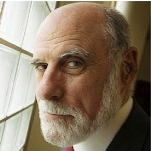Today the Mercatus Center at George Mason University has released a new working paper by Boston College Law School Professor Daniel Lyons entitled, “The Impact of Data Caps and Other Forms of Usage-Based Pricing for Broadband Access.”
There’s been much hand-wringing about fixed and mobile broadband services increasingly looking to move to usage-based pricing or to impose data caps. Some have even suggested an outright ban on the practice. As Adam Thierer has catalogued in these pages, the ‘net neutrality’ debate has in many ways been leading to this point: pricing flexibility vs. price controls.
In his new paper, Lyons explores the implications of this trend toward usage-based pricing. He finds that data caps and other forms of metered consumption are not inherently anti-consumer or anticompetitive.
Rather, they reflect different pricing strategies through which a broadband company may recover its costs from its customer base and fund future infrastructure investment. By aligning costs more closely with use, usage-based pricing may effectively shift more network costs onto those consumers who use the network the most. Companies can thus avoid forcing light Internet users to subsidize the data-heavy habits of online gamers and movie torrenters. Usage-based pricing may also help alleviate network congestion by encouraging customers, content providers, and network operators to use broadband more efficiently.
Opponents of usage-based pricing have noted that data caps may be deployed for anticompetitive purposes. But data caps can be a problem only when a firm with market power exploits that power in a way that harms consumers. Absent a specific market failure, which critics have not yet shown, broadband providers should be free to experiment with usage-based pricing and other pricing strategies as tools in their arsenal to meet rising broadband demand. Public policies allowing providers the freedom to experiment best preserve the spirit of innovation that has characterized the Internet since its inception.
Lyons does a magnificent job of walking the reader through every aspect of the usage-based pricing issue, its benefits as a cost-recovery and congestion management tool, and its potential anticompetitive effects. “Ultimately, data caps and other pricing strategies are ways that broadband companies can distinguish themselves from one another to achieve a competitive advantage in the marketplace,” he concludes. “When firms experiment with different business models, they can tailor services to niche audiences whose interests are inadequately satisfied by a one-size-fits-all flat-rate plan. Absent anticompetitive concerns, public policy should encourage companies to experiment with different pricing models as a way to compete against one another.”



 Ryan Radia recently posted an impassioned and eminently reasonable
Ryan Radia recently posted an impassioned and eminently reasonable  The Technology Liberation Front is the tech policy blog dedicated to keeping politicians' hands off the 'net and everything else related to technology.
The Technology Liberation Front is the tech policy blog dedicated to keeping politicians' hands off the 'net and everything else related to technology.